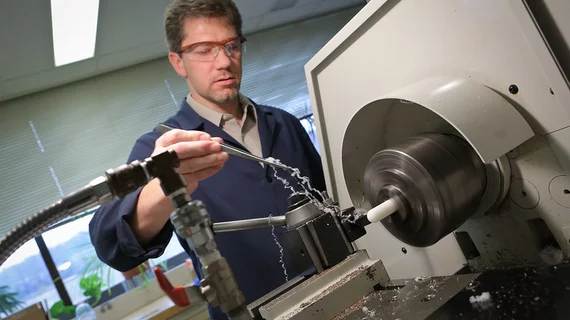The Penn State College of Medicine has received more than $3 million from the National Heart, Lung and Blood Institute to develop an implantable, wireless artificial heart that can last for at least 10 years.
“An estimated 10,000 people could benefit from a total artificial heart or donor heart each year, and only about 2,000 donor organs become available annually,” Gerson Rosenberg, PhD, the C. McCollister Evarts, MD, professor in artificial organs and professor of surgery and biomedical engineering at Penn State, said in a prepared statement. “Mechanical devices could be beneficial for people who are not candidates for transplant due to their age or other health conditions like high resistance to blood flow in the lungs.”
Rosenberg’s history with artificial heart technology goes all the way back to the 1970s. He and co-principal investigator Joshua Cysyk, MS, PhD, an associate professor of surgery at Penn State, hope to develop an artificial heart that includes both a left pump and a right pump that serve as the heart’s left and right ventricles. The group’s proposed solution — a collaboration with the college’s division of Applied Biomedical Engineering — will also be designed so that it can be implanted in smaller patients and adjust as necessary with the patient exercises.
“This project is a major undertaking and is years in the making, but at Penn State, we have the right experts and facilities to make it possible,” Rosenberg added. “If we’re successful, this total artificial heart could provide an alternative option to patients in need of a transplant.”
Related Cardiac Surgery Content:
VIDEO: TAVR durability outperforms surgical valves
How the continued rise of TAVR has impacted SAVR outcomes
VIDEO: MitraClip vs. surgical mitral valve replacement
Researchers share first human data on new interventional shunt procedure for HFpEF
Bariatric surgery associated with lower risk of death and cardiovascular disease
Young patient recovering after world’s first combination heart transplant and thymus procedure

